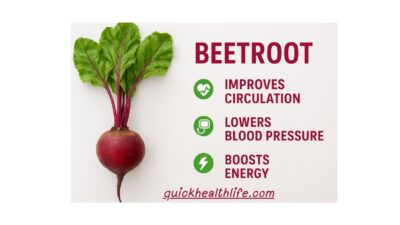Exercise isn’t just about getting fit or losing weight—it’s one of the most powerful tools we have for transforming our physical health, mental well-being, and overall quality of life. From reducing your risk of chronic diseases to boosting your mood and brainpower, regular movement delivers benefits that pills often can’t match.
The best part? You don’t need to become a marathon runner or gym fanatic to reap these rewards. Even modest amounts of consistent movement can produce dramatic changes in how you look, feel, and function.
Table of Contents
Benefits of Exercise at a Glance
| Category | Key Benefits | Recommended Activities |
|---|---|---|
| Physical Health | Reduces heart disease risk by 35%, strengthens bones and muscles, improves sleep quality, boosts immunity | Brisk walking, swimming, cycling, strength training |
| Mental Health | Reduces anxiety and depression symptoms by 30-50%, decreases stress, improves self-esteem | Yoga, team sports, running, dance classes |
| Cognitive Function | Improves memory, increases focus, enhances creativity, slows cognitive decline | Aerobic exercise, coordination activities, martial arts |
| Longevity | Adds 3-5 years to life expectancy, reduces cancer risk by 20%, prevents chronic diseases | Consistent mixed routine: cardio + strength + flexibility |
The Mental Health Miracle: How Exercise Transforms Your Mind
Fights Depression and Anxiety
Research shows exercise can be as effective as antidepressant medication for mild to moderate depression. Physical activity:
- Increases serotonin and endorphin levels (natural mood elevators)
- Reduces inflammation linked to depression
- Provides a sense of accomplishment and control
Reduces Stress
Exercise lowers cortisol (the stress hormone) and stimulates production of neurohormones that improve cognition and mood while reducing stress.
Boosts Brain Power
Regular movement:
- Increases blood flow to the brain, delivering oxygen and nutrients
- Stimulates growth of new brain cells
- Improves memory and learning capacity
- Enhances creativity and problem-solving abilities
For students: Just 20 minutes of exercise before studying can improve concentration and information retention.
Physical Benefits That Extend Beyond Weight Management
While weight control is a common motivation, exercise offers far more significant physical benefits:
Heart Health
- Lowers blood pressure and improves cholesterol levels
- Strengthens heart muscle and improves circulation
- Reduces heart disease risk by 35%
Bone and Muscle Preservation
- Weight-bearing exercise builds bone density, preventing osteoporosis
- Strength training preserves muscle mass, especially important as we age
- Reduces risk of falls and fractures in older adults
Disease Prevention
Regular exercise significantly reduces risk of:
- Type 2 diabetes (40% risk reduction)
- Certain cancers (breast, colon)
- Metabolic syndrome
- Arthritis pain and disability
Immune System Boost
Moderate, consistent exercise:
- Improves immune system surveillance
- Reduces illness frequency and severity
- May enhance vaccine effectiveness
The Social and Emotional Benefits of Movement
Exercise isn’t just a solitary pursuit—it can profoundly impact your social life and emotional well-being:
Community Connection
Group activities, sports teams, and fitness classes provide:
- Social interaction that reduces loneliness
- Accountability and motivation
- Shared experiences that build meaningful connections
Confidence and Self-Esteem
As you build physical strength and capability, you typically experience:
- Improved body image and self-acceptance
- Sense of mastery and accomplishment
- Greater resilience in facing life’s challenges
Better Sleep Quality
Regular exercisers fall asleep faster, experience deeper sleep, and wake feeling more refreshed. Just avoid vigorous exercise too close to bedtime.
FAQ About Exercise Benefits Answered
Q: How much exercise do I need to see benefits?
A: The WHO recommends 150 minutes of moderate or 75 minutes of vigorous activity weekly, plus strength training twice weekly. But even 10-minute bursts provide benefits—the key is consistency.
Q: What’s the best exercise for mental health?
A: While all exercise helps, mind-body practices like yoga and tai chi show particularly strong benefits for anxiety and depression. Outdoor activities provide an additional mood boost.
Q: Can exercise really help with chronic pain?
A: Yes. Appropriate exercise reduces inflammation, strengthens supporting muscles, improves mobility, and releases natural pain-relieving endorphins. Always consult a physical therapist for pain conditions.
Q: I’m over 60—is it too late to start exercising?
A: It’s never too late! Older adults experience dramatic benefits from exercise, including improved balance, cognitive function, and independence. Start gently and focus on consistency.
Q: How does exercise boost brain function?
A: Exercise increases blood flow to the brain, stimulates growth of new neurons, enhances connections between brain cells, and reduces inflammation—all leading to better memory, focus, and cognitive performance.
Q: Can exercise replace medication for depression?
A: For mild to moderate depression, exercise can be as effective as medication. For severe depression, it’s best used alongside professional treatment. Always consult your doctor before making changes to medication.
Getting Started: Practical Tips for Beginners
- Start small – Even 10 minutes daily provides benefits
- Choose activities you enjoy – You’re more likely to stick with them
- Mix it up – Combine cardio, strength, and flexibility training
- Schedule it – Treat exercise like an important appointment
- Listen to your body – Some discomfort is normal, but pain isn’t
- Focus on consistency – Regular moderate exercise beats occasional intense workouts



